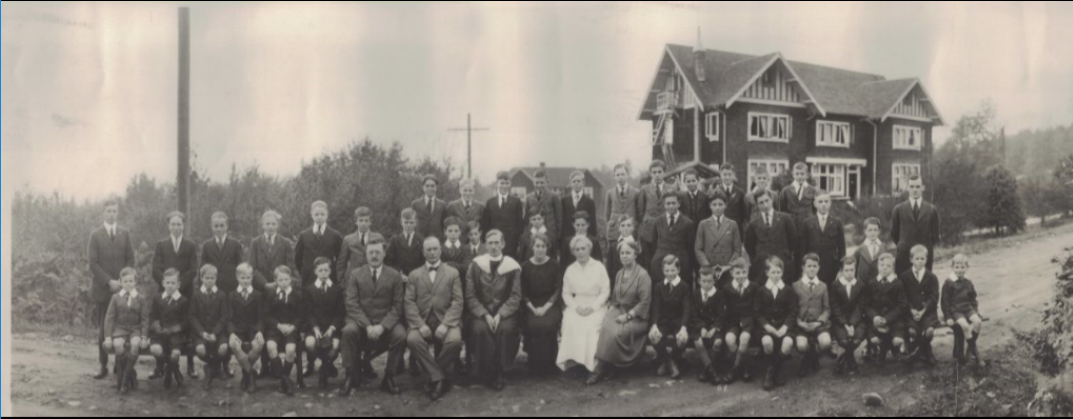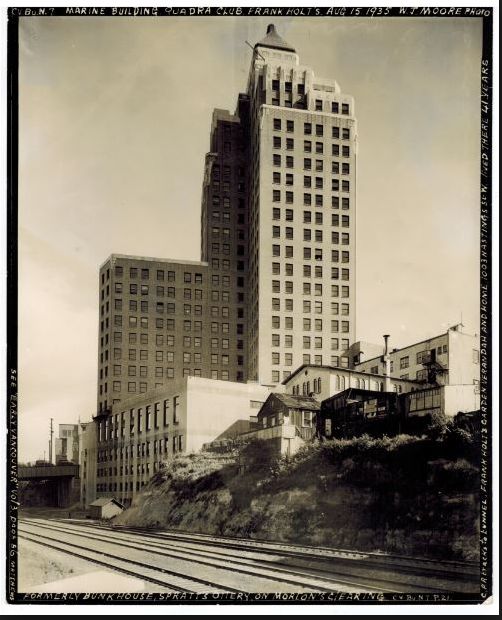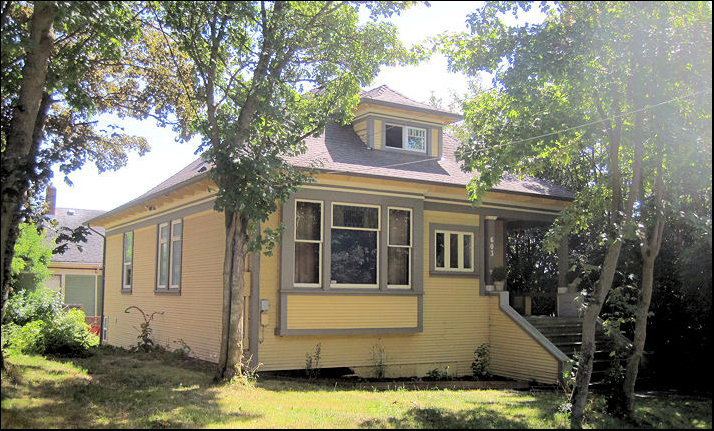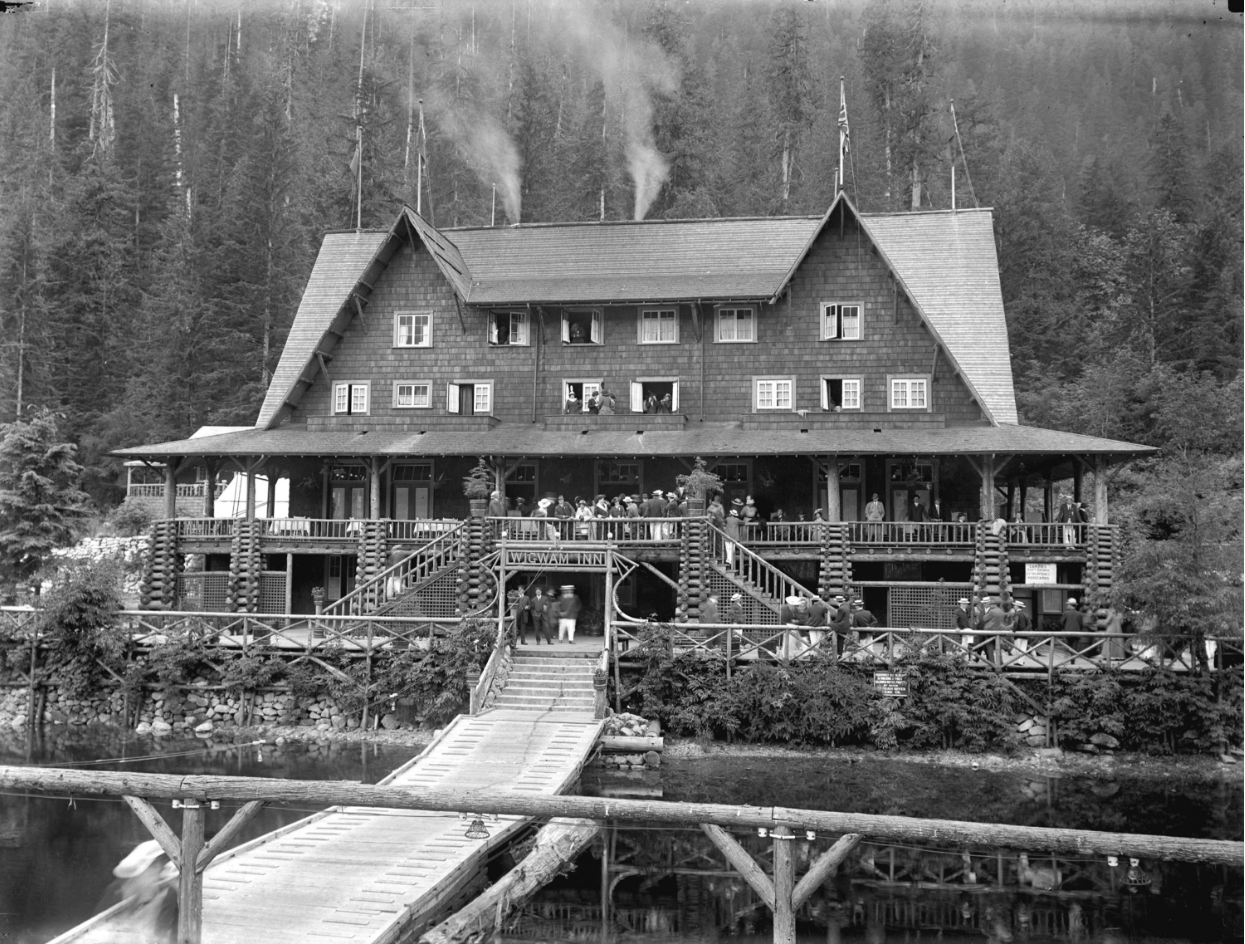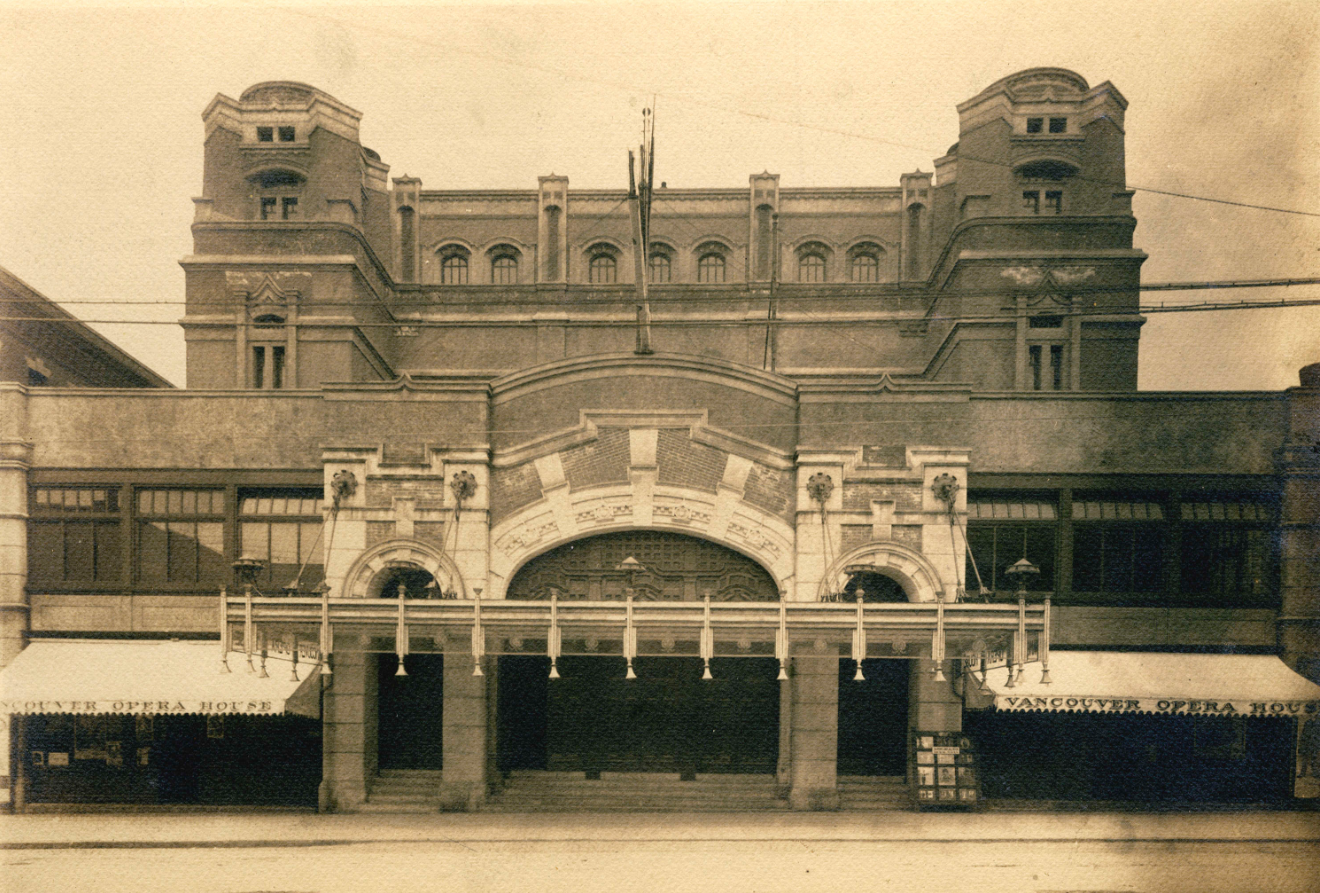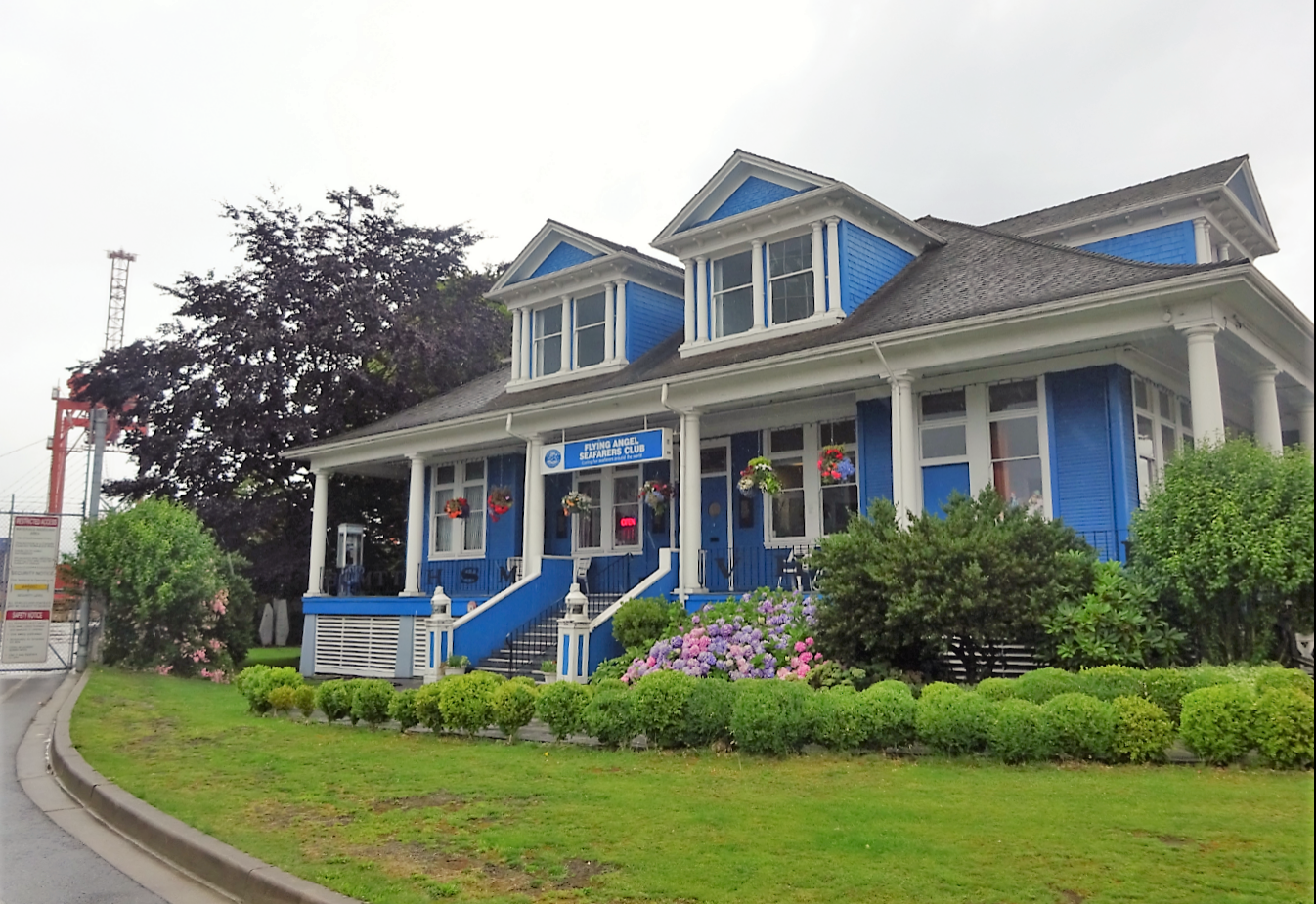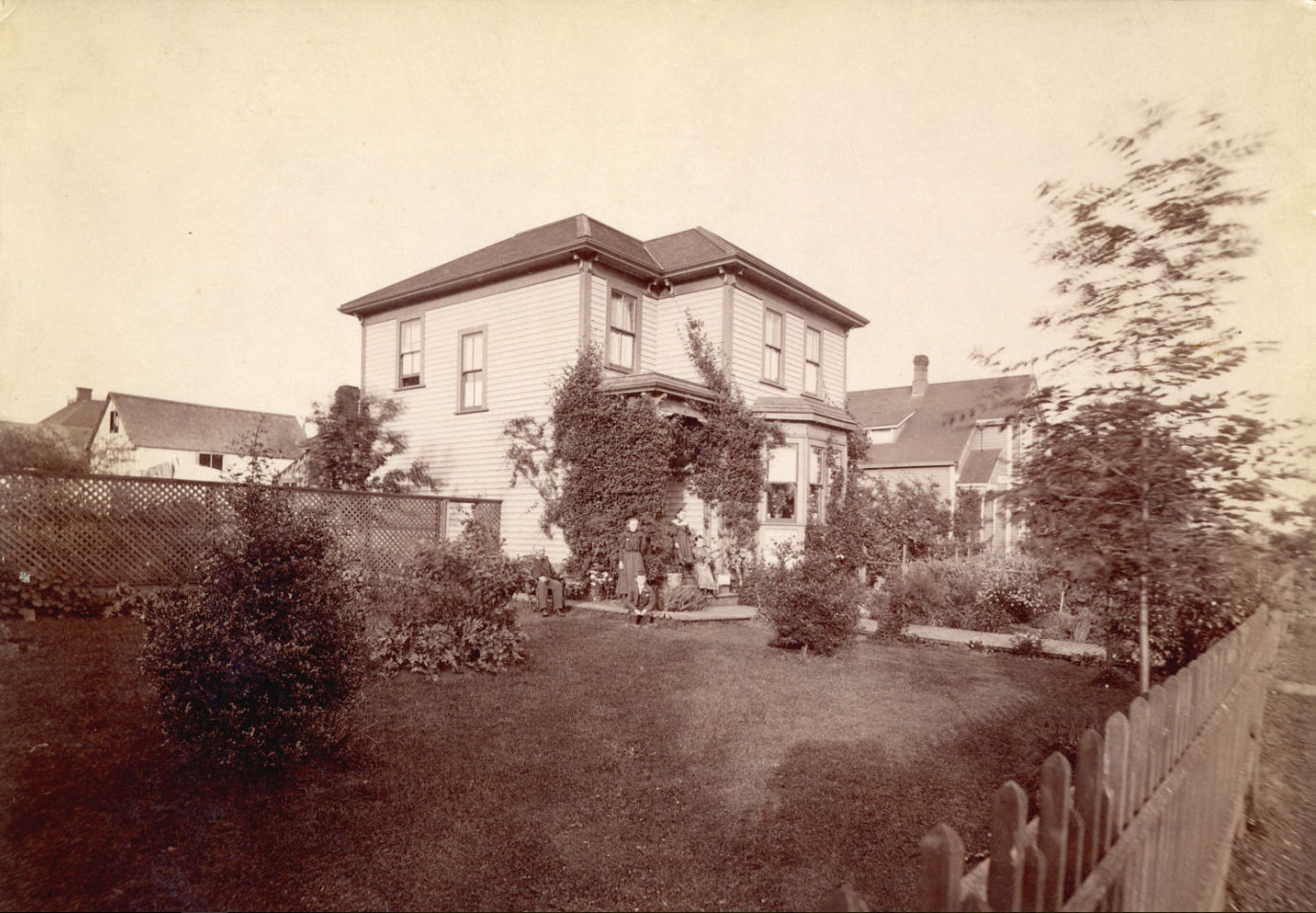If you live in North Vancouver you may have noticed the old Tudor-style house at Chesterfield and Osborne in the upper Lonsdale Area.
It’s hard to see these days, because several years ago we allowed developers to build two large “carriage” houses, in what was once a magnificent garden filled with hollies, laburnums, cedars, black walnuts, a cherry tree, a rose garden, and a large rhododendron.



